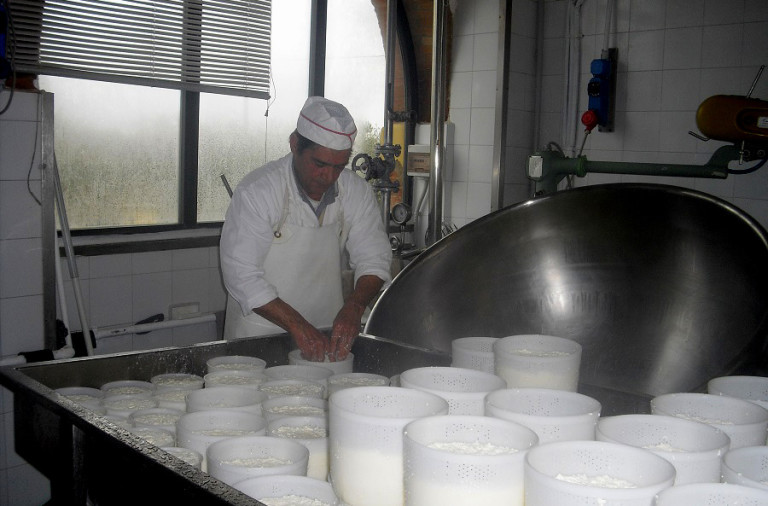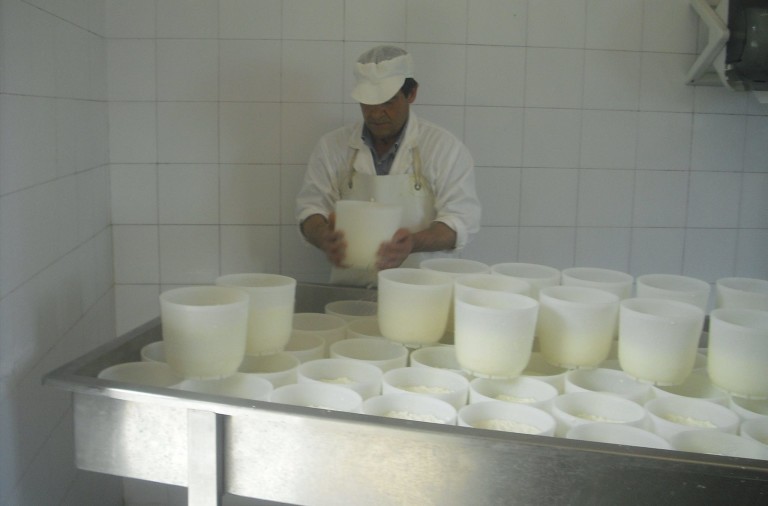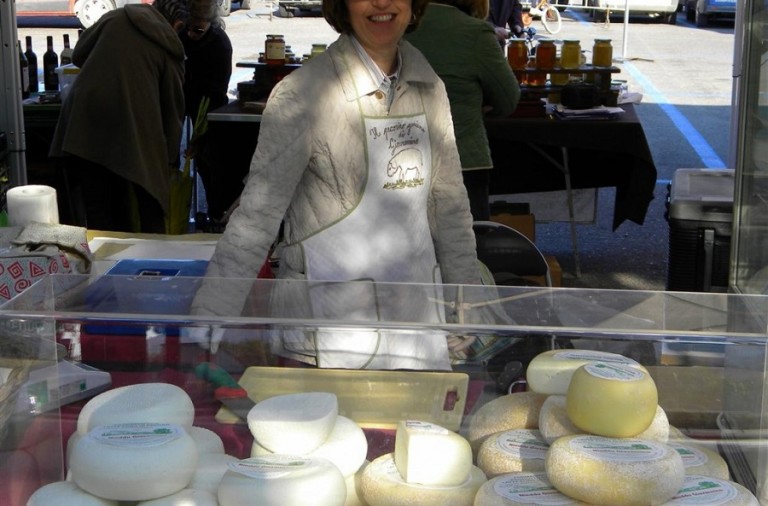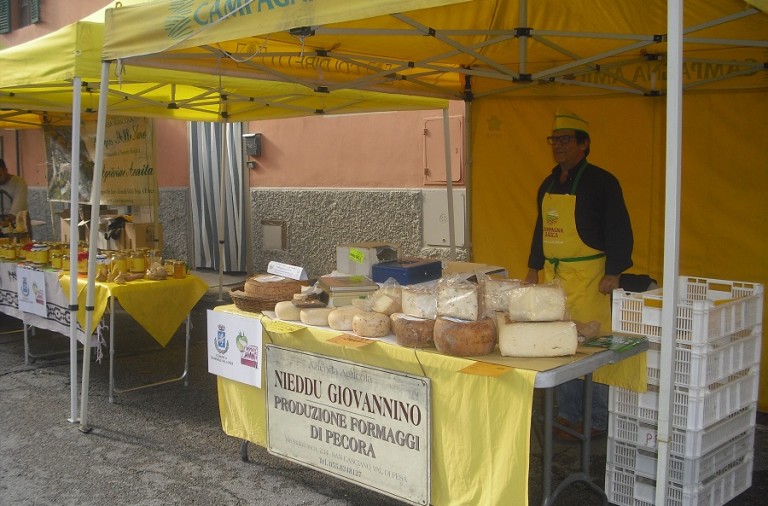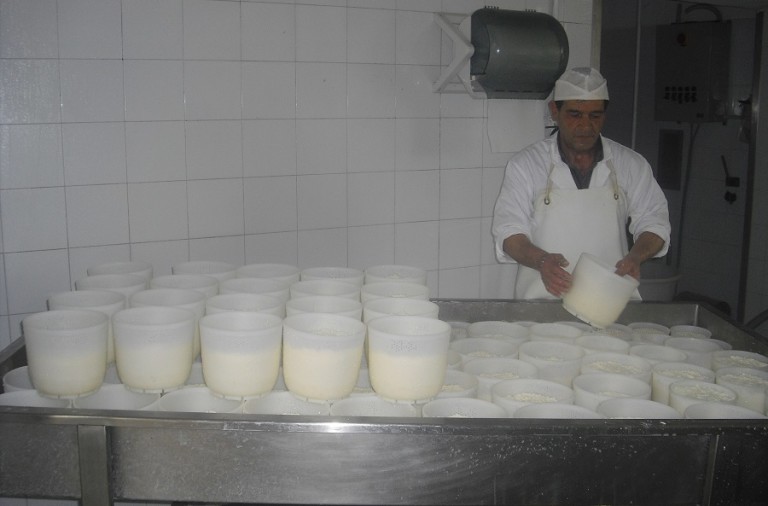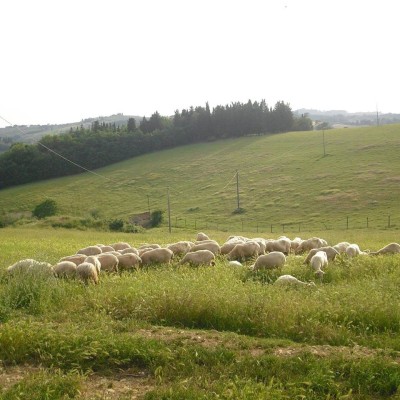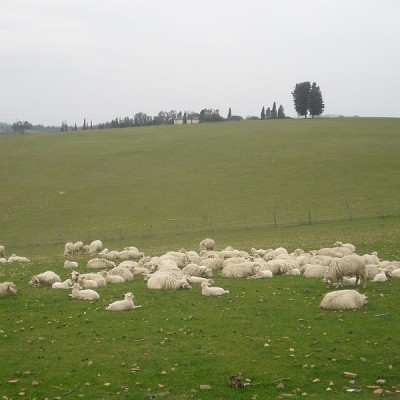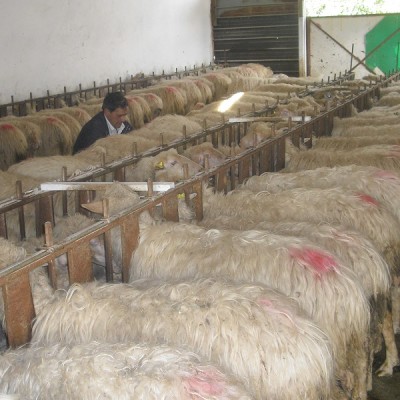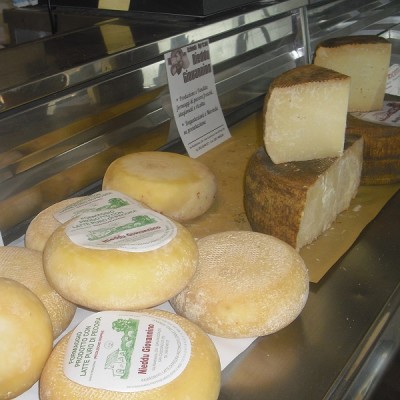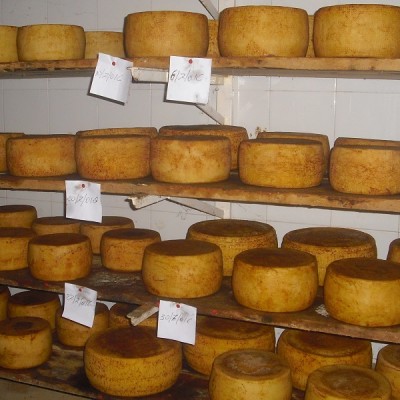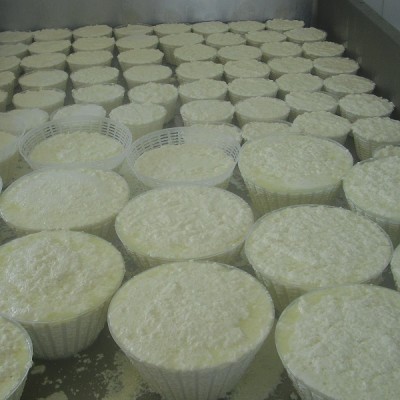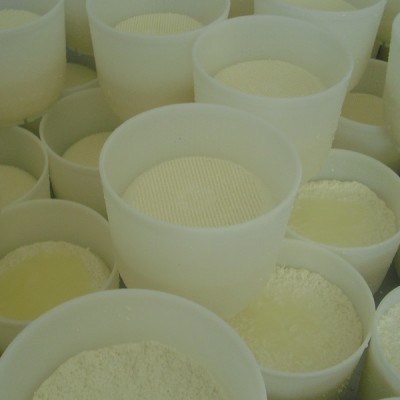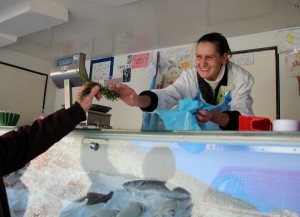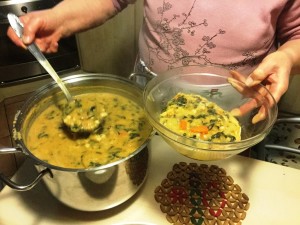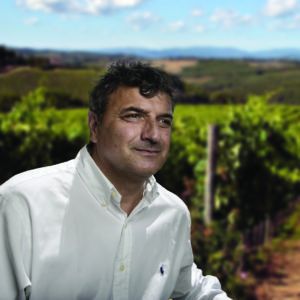Articolo disponibile anche in: Italian
Giovannino Nieddu, originally from Sardinia, began making cheese at 8 years old. At 10, he milked the sheep. Now, at 65, he continues to do the same, waking up every morning at 4AM.
It is a difficult job, done with sacrifice, without Easter or Christmas. This shepherd has seen many changes: modernization, the refrigerator, the milking machine and the cheese “washer” make the work less tiring, but it is still challenging and technical.
With courage and determination, Giovannino withstood prejudice for being a ”foreigner”, not from Tuscany.
He rolled up his sleeves and began a small but specialized farm in via Malafrasca 234 in the township of San Casciano, near the border with Tavarnelle.
“I have been living here for 50 years, in the same home,” he begins. His Tuscan accent reveals a little bit of his original accent. “I have always worked with cheese; first with my parents and now with my wife, Sandra”.
“From 1982 to 1990, I raised race horses” he tells us. “I left it because I didn’t like the atmosphere of the racetracks. I substituted that job with a dairy. The farm is made up of 60 hectares, 15 of them woods”.
“Presently, we have 220 Sardinian sheep. They are the largest milk producer and have the longest range. The sheep are shaved in May and are part of our family. Some of them come when they are called”.
“We produce fresh and aged Toscanello as well as one with pepper and chili pepper, and ricotta. We sell directly and in the markets of Tavarnelle, San Casciano and Impruneta, and to some shops and the Coop supermarkets”.
“Coagulant is added to pasteurized milk,” he says, explaining the procedure. “Once the curd is broken, we make ricotta from the whey. The cheese, instead, is salted the day after and brought to the warehouse to be “stagionato”: if it is fresh, it stays there for 30 to 40 days. Aged cheese requires four months or more”.
Giovannino concludes: “We hold cheese tasting upon reservation, with a taste of all of our dairy products, accompanied by olive oil and wine, a visit to the building and the animals and the various stages of cheesemaking”.
Noemi Bartalesi
